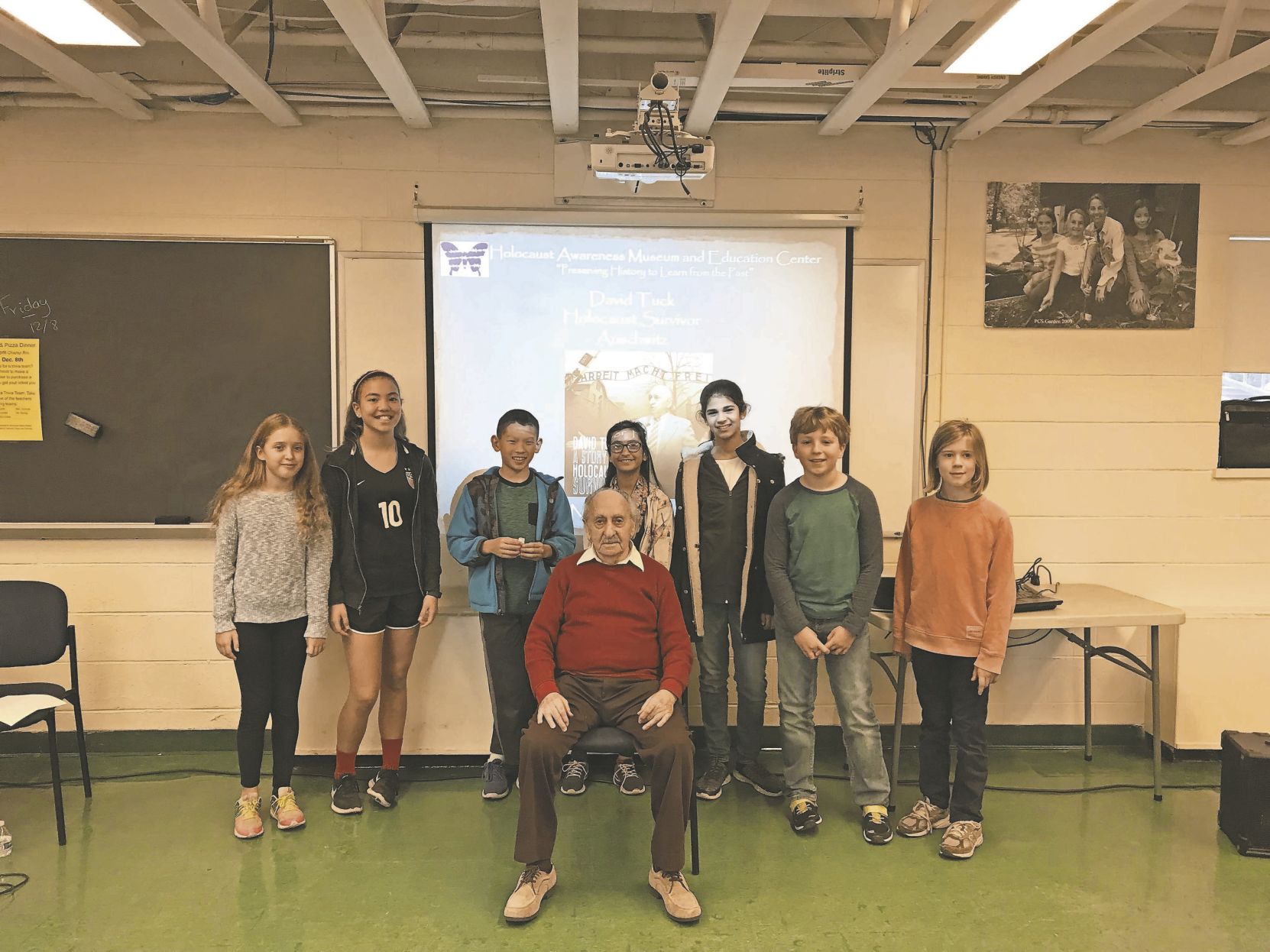By Philip Sean Curran, Staff Writer
Holocaust survivor David Tuck sat in a chair, his legs crossed at his ankles, in front of a room filled with about 50 Princeton Charter School students who were around his age when the life he knew in Poland changed forever.
“I went through hell,” said Tuck to the fifth-graders listening to him in silence. The timing of his second ever visit to the school coincided with the students reading, in their English class, “Number the Stars,” a historical novel set in World War II Denmark.
Tuck shared how, as a Jewish boy, the world he knew changed and an uncertain world that included working in forced labor camps followed.
He asked the students to picture what had happened to him on Sept. 1, 1939, when all the radio played was “Deutschland uber alles.” World War II had started, Poland was under attack and the country’s more than three million Jews eventually would be targeted for persecution — and extinction.
Tuck told the students that all Jews were required to wear yellow armbands on their left arms and stars of David. After a while, he said, a family friend came to the house saying an order had gone out, they had 48 hours to pack up what they could because they would be relocated. In all, 124 people, including children, were transported on trucks to the Lodz ghetto, he said.
Though actually younger, he would assume a false age as a 15-year-old and be a mechanic. Pretending to be older than he was had to do with self-preservation, he said.
“Anybody tell me why fifteen?” he asked the children. “Because at ten (years old), I have no right to live, I can produce nothing.”
He would be sent to labor camps, an ordeal that tested his ability to survive. His food ration was meager, he said.
“Every morning, I used to wake (at) four o’clock in the morning, to wash myself. And I waited in line for a slice of bread and a coffee in the morning, and a slice of bread and a coffee in the evening and a soup in (the) daytime. I was lucky if I found a potato,” he said. “And with this, I lived and suffered for five and a half years.”
Put to work constructing a highway, he learned little things, like making sure to eat small bites of bread instead of eating it all at once. He had no choice but to endure.
“If they looked at somebody who couldn’t work or was sick, (they) took them out and killed them. Just like that,” he said.
Malnourished, he was losing weight. He recalled one day waking up feeling sick — a fact that he kept to himself.
“I didn’t tell nobody, because I was afraid to tell. If I tell somebody, they’re going to kill me,” he said.
His ordeal would take him to Auschwitz, where he would get a number tattooed on his left forearm, 141631. Recalling the words on the gates to the camp, “Arbit macht frei” or “work sets you free,” Tuck said, “The only way to get free is to die.”
He eventually would be liberated by the American Army and then resettle in the United States.
For more than 30 years, Tuck, now in his late 80s, has been going to schools in New Jersey and in Pennsylvania, where he lives in Levittown, sharing his story. Last year, he spoke to more than 15,000 students.
“You’re the future, you have to remember,” he told the fifth-graders.
After his remarks, he took questions from the students, some of whom later asked for his autograph.
“I just cannot believe that somebody could be treated like that,” said student Magnus Graham, “just because of their religion.”

